Our Favourite Games of 2016
The GI.biz team lays out its personal picks for the industry's best of the year
A good year for games, if little else - that's how one colleague explained his feelings about 2016 when the GamesIndustry.biz team convened to discuss the games we've played the most and liked the best. With the UK now lumbering out of Europe, Donald Trump poised to lumber into the White House, and a beloved artist or creator shuffling off the mortal coil what feels like every other week, it's difficult to argue with that assessment.
But that counts for the bit about games, too. After all, in trying times there are few better escapes than an intricately detailed virtual world or a finely honed gameplay mechanic, and in that sense the last 12 months have delivered in abundance. We here at GI.biz take a slightly different approach to the lists that flood the internet each December. No top 10s, 20s or 50s, no attempt to be definitive or objective, no particular order; one game each, for any reason we each deem appropriate.
That means a lot is left on the cutting room floor, but then you probably don't need another website to tell you that Uncharted 4 and Dishonored 2 and Titanfall 2 are brilliant. You might be interested to know how close Obduction, BoxBoxBoy, Quantum Break and Raw Data came to being included here, but choices must be made. Read on, and tell us about your own picks in the comments.
Far Cry Primal
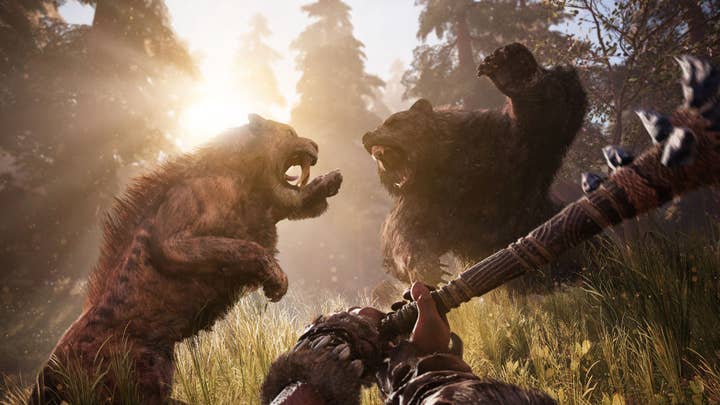
Primal is the first Far Cry since FC2 to try something different. The Stone Age setting is one rarely explored in this medium, instantly giving Primal a completely different atmosphere to both rival games and its forebears. The shift away from the high-octane mayhem of the past two entries results in a more intense, survival experience. Gone are the automatic weapons that make gamers feel so empowered, replaced with flimsy bows and spears you have to manufacture yourself. Gone are the vehicles that allow for a quick getaway; instead there are wild beasts to ride, but only if you can hunt and tame them first.
"This is perhaps the only title where Ubisoft's formula actually makes sense"
Everything represents danger. At the beginning of the game there are few traces of civilisation, pitting you as much against the wilderness and wildlife as against NPCs. It's easy to find yourself losing more time to an unexpected encounter with a pack of wolves or barely escaping a failed attempt at hunting a mountain lion than fighting humans. Even the day/night cycle, often merely an aesthetic mechanic in games, ramps up the tension as you're plunged into darkness and debate whether to risk announcing your presence with a flaming torch.
This is arguably Ubisoft-by-the-numbers again: the owl inherits Assassin's Creed's eagle vision, there are collectibles everywhere, and bonfires replace the climbable towers that unlock the map. But of course there's eagle vision - you're seeing through the eyes of a bird. Of course you collect countless crafting items - in 10,000 BC, the only way to acquire any weapon was to scavenge materials and craft it yourself. This is perhaps the only title where the publisher's formula actually makes sense.
- James Batchelor
Hitman
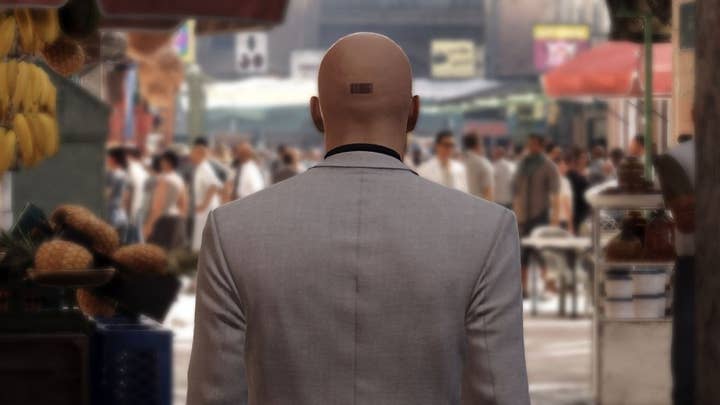
My affection for the Hitman series really started with Blood Money, a pinnacle for level design that feels as smart and morbidly funny now as it did ten years ago. Indeed, the shadow of Blood Money has loomed over the games that followed, most notably Hitman Absolution in 2012, which drew criticism from certain corners for straying too far from the glorious puzzle-box missions that IO Interactive executed so well back in 2006. In my estimation, Absolution was a very good game, guilty only of lacking the greatness of Blood Money, but its commercial performance appeared to fall short of Square Enix's expectations. For an awful moment there I wondered if we'd ever hear from Agent 47 again.
"One can only wonder at the heights IO might reach on a surer footing. Bring on Season Two. I'll be waiting"
Well, panic over, because this year's reinvention of the series encapsulates pretty much everything I believe AAA games should be doing in a world of connected consoles and friction-free digital distribution. IO knew it needed to return to the structure of Blood Money, and in looking to its past found a way to embrace the future with a confidence that few developers working at this scale have managed. I was wary at first, I'll admit, but the low price of the individual episodes made the first a simple purchase to justify, new content arrived just as I started to hunger for it, and IO's inspired live events filled in any gaps. All of that is by design, proof that IO's strategy has played out as expected.
What's more, Hitman hasn't sacrificed quality, detail and production values in the name of progress. Sapienza, the second episode, is right up there with IO's best work, and is therefore among the very best single missions in the entire canon of video games. Not every episode was quite that good, of course, but the six episodes that comprise Hitman's first season aren't separate games; they are parts of a much grander vision, one that IO intends to extend to a second season and far beyond. Now that the Danish studio has familiarised itself with this bold new way of thinking about its work, one can only wonder at the heights it might reach on a surer footing. Bring on Season Two. I'll be waiting.
- Matthew Handrahan
The Gallery: Episode 1 - The Call of the Starseed
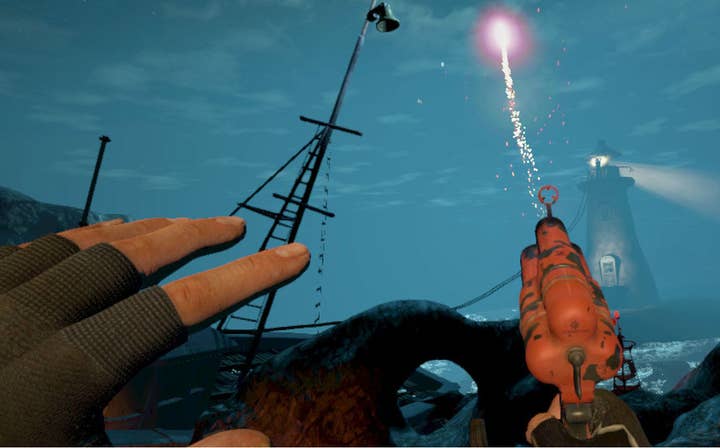
As a father of 15-month old twin boys, I have to admit that my gaming time (and entertainment in general) has been somewhat limited in 2016. That being said, having played enough VR at various trade shows, I knew I had to someday have the VR experience in my own home. That day happened over the late summer when I finally had the time to build my first-ever VR PC. And while I've enjoyed numerous demos and shooting-style titles in virtual space, it was Cloudhead Games' first episode of The Gallery - The Call of the Starseed that truly showed me why I'd invested time and money into VR in the first place.
"The Call of the Starseed truly showed me why I'd invested time and money into VR in the first place"
Unlike a lot of other games that felt like incomplete experiences or were simply not built for the ground-up with VR in mind, The Gallery felt like a truly immersive sci-fi world to me. Playing as a young person named Alex, looking for my sister on an island, I was totally entranced by the environments, the narration and the visual effects. The ending sequence - which unfortunately comes way too fast in just 2-3 hours - was so trippy (in a good way) that I literally dropped my jaw open in wonder a few times before closing it in disappointment as I realized that the game actually had ended. This is what the best art in any medium can achieve - time flies when you're engrossed in something.
Just as the early movie pioneers introduced all sorts of filmmaking techniques to capture people's attention, in my view Cloudhead should now be viewed as one of the pioneers in VR, demonstrating to other developers how to properly take advantage of the powerful canvas VR offers creators. Narrative adventure I think is where VR truly shines - I can't wait to play Episode 2 and more games like The Gallery.
- James Brightman
Pokémon Go
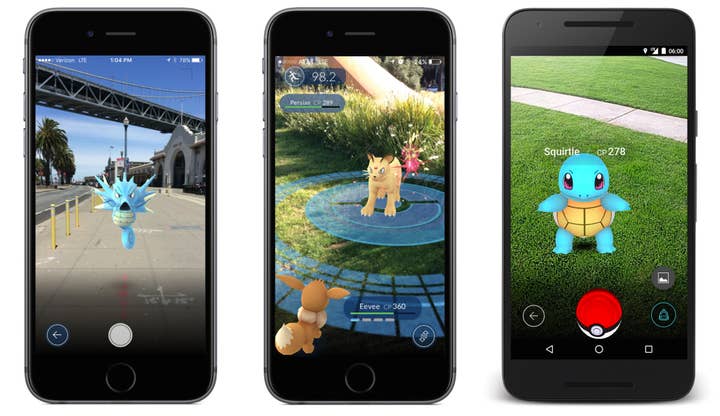
I fear that I might be mocked for picking Pokémon Go as my game of the year. I know that really - for all its location-based AR wizardry - that it's a simple collect 'em up, only with far more walking. I know its battle system is largely just tapping the screen angrily whilst trying to not look like a fool outside the pub. I know it's pretty rubbish outside of cities. I know the absence of a location system pretty much ruined the experience for a few weeks - before we learnt to live without it. I also know that for anyone that played Ingress, it's not even that innovative.
"Pokémon Go as a game was entertaining, but as a phenomenon it was joyful to be part of"
But for all that, how Pokémon Go made me feel was unmatched by anything anyone else managed to produce. In a summer overshadowed by the fear and trepidation around Brexit, and the impending fear and trepidation over Donald Trump, Pokémon Go was the hero we needed. Walking the streets at lunchtime, finding a park where a gang of Go players would sit, laying down lures for one another so we could catch that Hitmonchan, comparing our collections, competing over gym placements, sitting on forums waiting to hear news of a Chamander nest. Pokémon Go as a game was entertaining, but as a phenomenon it was joyful to be part of. And as the nights draw in, with our divided society continuing to dominate the media, I still find myself pulling on my scarf, booting up the app, and going on a hunt for that elusive Santa Pikachu.
- Christopher Dring
Shiren the Wanderer: The Tower of Fortune and the Dice of Fate
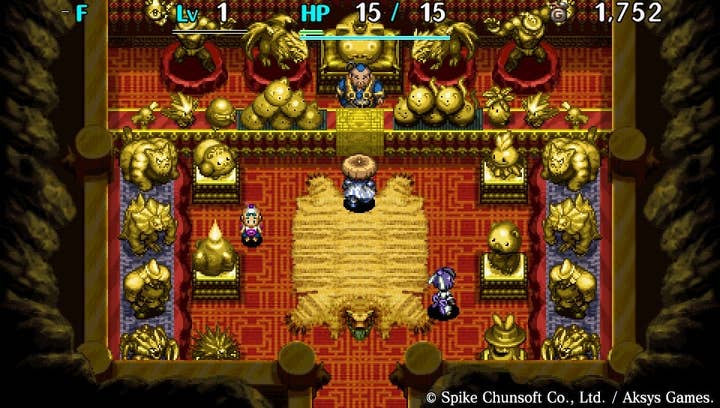
2016 was not my best year for gaming. A busy personal life made it difficult to devote time to console games, and as much as I enjoyed aspects of Uncharted 4, Watch Dogs 2, and Firewatch, I couldn't find the time to finish them. Instead I found my gaming dominated by handheld games for the Vita, which I could comfortably suspend and come back to for five minutes here or 10 minutes there, whenever the mood might strike.
"Shiren asks the player to complete its entire quest through dozens of randomly generated dungeon levels in one marathon go"
I dug the arcade-style challenge of Volgarr the Viking and fell hard for the criminally undermarketed XCOM: Enemy Unknown Plus, but nothing spoke to me as clearly as Shiren the Wanderer. A turn-based roguelike Japanese RPG with a reputation for punishing difficulty, Shiren asks the player to essentially complete its entire quest through dozens of randomly generated dungeon levels in one marathon go.
When you die, you lose all your equipment and character progression and get dragged back to the beginning village. As you progress, you find ways to escape the dungeons and return to the village with your loot (but not your character progress), or ways to retrieve favorite items if monsters get the best of you, but it only ever takes a few unlikely rolls of the dice to strip you of all your progress and boot you back to square one.
Shiren is a throwback in many ways, from its daunting difficulty to its insistence that players learn about its numerous interacting systems through trial and error rather than gentle hand-holding. But the evolution of tactics that occurs as you suss out exactly what's going on and how each piece impacts the rest ultimately makes for an engrossing and rewarding game, and one I don't hesitate to call my game of the year.
- Brendan Sinclair
Final Fantasy XV
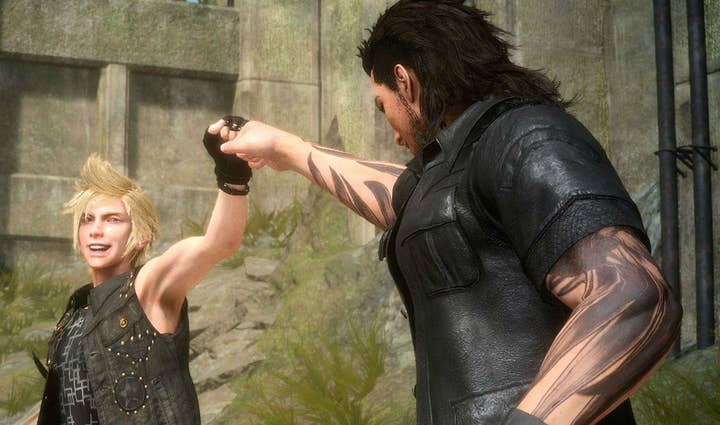
Let's start with this - I thought I'd hate FFXV. Everything about the marketing, from the East 17 cover band characters to the flashy 'hold down circle' combat made me think that perhaps I'd moved on from a series which still gives me the same warm and fuzzies as it did 22 years ago when I paid god knows how much for an American import of Final Fantasy III on the SNES, along with the off-brand Action Replay cartridge to make it work.
I was wrong. I gave it a chance, because the world building, the monster design and the comfortable familiarity of the series deserved a fair crack of the whip. Because XIV was the first MMO I managed to care about at all, because Final Fantasy Tactics is still one of the top five strategy games of all time, because any game which has been in development for 10 years is going to be interesting at the very least.
And it is. It's flawed and awkward in many places, and yes, the four characters annoy the living hell out me, but it's still got that magic, and I can't stop playing it. Part of me recognises that there are probably other games I could be having more fun playing, but FFXV is the packet of biscuits you don't even know you're eating until you reach the bottom.
Plus, I'm a huge sucker for a decent fishing mini-game.
- Dan Pearson
